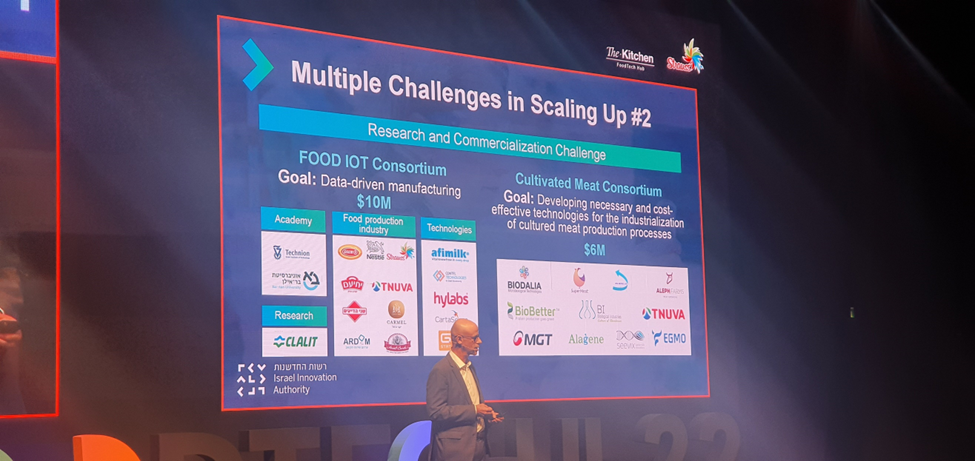“Scale for a change”: Insights into FoodTech IL 2022
- Exequiel Lacovsky
- Dec 12, 2022
- 3 min read
Updated: May 16, 2023

“Scale for a change” was the motto of the most recent Food Tech event in Tel Aviv, Israel. The Kitchen Hub by Strauss Group hosted the FoodTech Expo with over 75 Israeli startups, including tastings, 1700 attendees from all around the world and more than 30 speeakers. During the event, we had the opportunity to listen to many conferences and debates, in the following paragraphs I present a small extract of what seemed most relevant to me.
Ofra Strauss, Chairperson of Strauss Group, opened the event by sharing her thoughts about things they have learned during these past three years. Referring to topics like the covid 19 pandemic, climate immigrants, poverty, and inflation, just to mention a few. Concluding that the world is not enough for us as a species, and we are living in an age of scarcity but also, we are in the age of technology and innovation. She suggested the public approach the challenges in a realistic way focusing on solutions to the big-impact food industry. An industry with milestones such as the agriculture revolution, the industrial one, pasteurization, and now the foodtech revolution aims to make food more sustainable, enough, and healthy. Finally, she invited the audience to invest with a sense of urgency because we don´t have time.
The CEO of the Israel Innovation Authority, Dror Bin, shared with the crowd that in 2021 the investment in Israeli foodtech startups was 1 billion USD. He also explained that the Israel Innovation Authority has committed to diversifying Israel’s innovation power, and foodtech is one of them. The motive is the urgency to solve food security (“when all people, at all times, have physical and economic access to sufficient, safe and nutritious food that meets their dietary needs and food preferences for an active and healthy life”*), global food demand, and climate change. At the same time, he recognized the following as the biggest challenges of the industry: Regulations which will take time. People don´t like processed food, a lot less, very processed food like most of the food substitutes found nowadays. There is still a lot to invest in research and development (R&D) to meet costs and prices to have a real global impact. At last, the scale-up from R&D to production is yet in the early stages.
From my personal standpoint, one of the most interesting questions in the debates was when we will be able to buy cultured meat and alternative proteins as regular products and what are the biggest challenges for scaling up. The answers were from startups and big food corporations both perspectives agreeing that the challenge is very big and there is still a long way to go. They talk about the need of working hand in hand with startups and corporations. That there will be a lot of resistance, regulations, a need for cost reduction, awareness, and education about the product, creating the habit among consumers, and increasing the frequency of purchase. All of that takes time. At this moment cultured meat and most alternative proteins are still unknown to consumers. There isn´t existing infrastructure or production capacity to scale up these technologies, therefore partnerships are necessary to have the right products to enter the market. It’s evident that the solutions are required to give people the same sensorial experience as the food they know. Ultimately, we cannot overlook that food is cultural, so in order to get into the market, is indispensable to connect with emotions. There is a tendency of penetrating the market through restaurants because this is where people are willing to try new products but there are few products that have advanced further than that stage. There is a divided opinion between which way will lead to the best and fastest outcome for the startups, getting to the market as business to business (B2B) or as business to consumers (B2C) each strategy with particular pros and cons.
It would seem that the food tech revolution has arrived, we started to see and taste some of the solutions at a small scale, but to have a real impact a multiplier effect is needed. The scale-up is full of challenges but also opportunities. Climate change and food security are urgent problems that can´t wait, innovation is essential to solving them and the Israeli ecosystem is working on that. Getting into this food revolution now is a matter of survival.


* Based on the 1996 World Food Summit, food security (https://www.worldbank.org/en/topic/agriculture/brief/food-security-update/what-is-food-security)




Comments